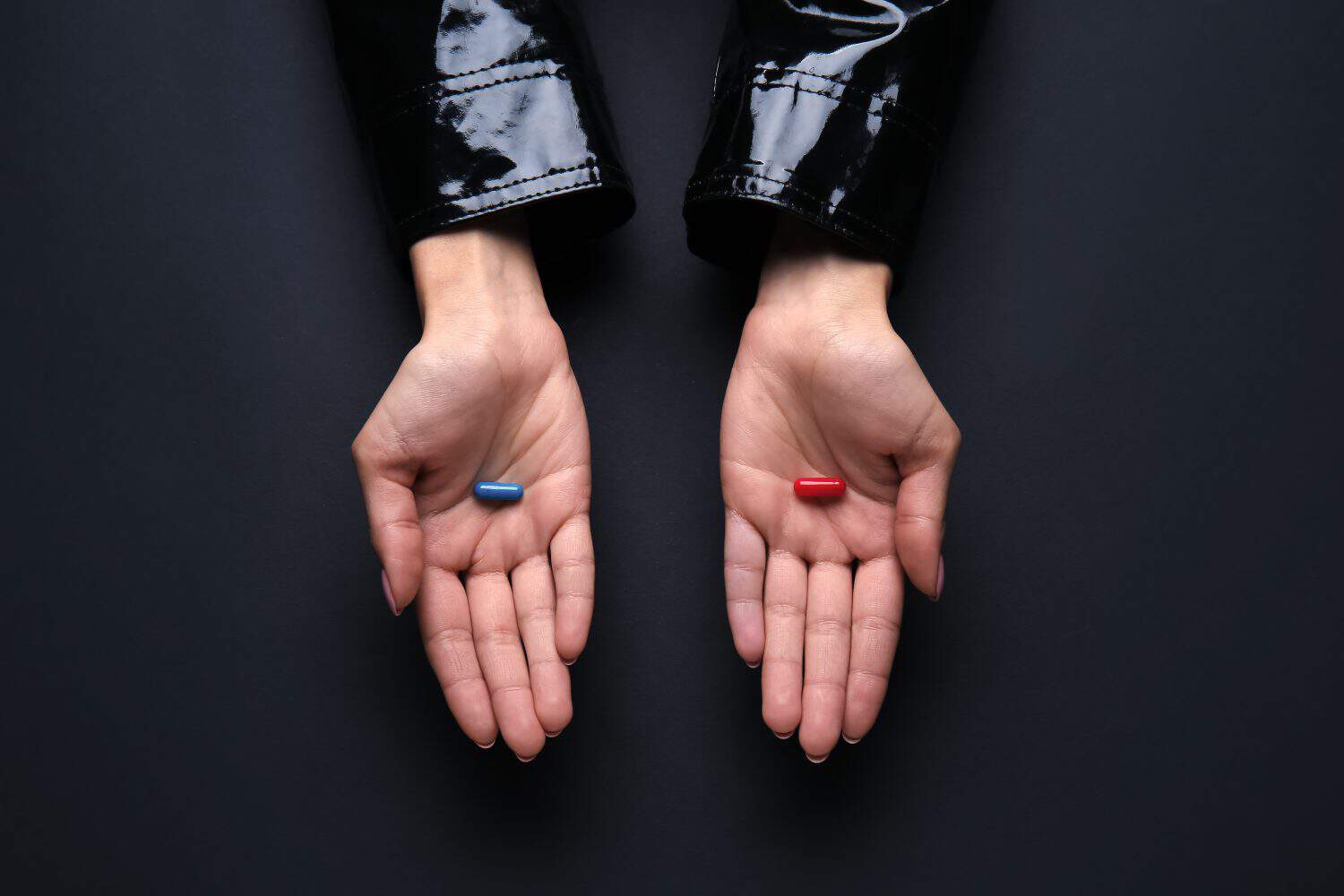Every generation has its unique slang. The dedicated lexicon associated with your age range is one of the primary features that will identify you, no matter how old you look. Using the wrong slang can also date you, making you look older and less hip than if you used the slang more associated with your age group. However, as new slang enters the common lexicon, it leaves the previous generations scrambling to determine what the young people mean when they say stuff like “It’s bussin’!” (it’s delicious.) Even if we don’t use it or think it’s silly, it’s nice to understand what the people around us say, right? So, let’s look at some slang popular with Generation Z that you might not know the meaning of.
To determine what needed to be on the list, we started by looking at lists of Generation Z slang. Gen Z slang has a relatively big crossover with millennial slang, with many millennials using slang that directly or indirectly became part of the Gen Z lexicon. We tried to pick the most esoteric ones in either usage or original meaning.
Once we had a list of prospective choices, we surfed various social media platforms to see the prevalence of usage and the age groups with which the terms were most associated. This step helped us ensure that we picked slang terms that were genuinely in use by Zoomers rather than ones that were more associated with millennials or Gen Alpha. Then, we researched those terms to find their meanings, origins, etymology and how to use them in a sentence. (To explore slang from another country, check out Irish Slang and Phrases That Confuse Americans.)
Based

Based is a term used by both Gen Z and Millennials. It originally meant “to be addicted to crack cocaine or otherwise acting as though you were.” Then, rapper, Lil’ B redefined the term to mean “to be yourself unabashedly.” If someone didn’t pay attention to social norms and just did what made them feel best, they were based.
However, in more recent usage, we use it to refer to an opinion or something else that the speaker agrees with or finds cool. It sees a huge amount of usage in political spheres where netizens describe the opinions that align with their political beliefs as “based.” There’s been a huge boom of use in right-wing spaces, to the point where some groups may consider using the term “based” as a right-wing dog whistle.
Etymologically, it’s an adjective. You can’t add an “-ly” to turn it into an adverb. So, “basedly” isn’t a word you can use. You can use it as a positive antonym for “cringe.” So if something is the opposite of cringe, it would be based. When you use it in a typical sentence, you’ll use it to describe something someone else said or did. “That’s so based!” is a simple and easy-to-understand example. Due to its high rate of usage in right-wing spheres, it’s gained the variation “based and red-pilled”. In this case, the user associates the “based-ness” of an opinion with being generally conservative (“taking the red pill.”)
Boujee

When someone or something is “boujee”, it means they’re high-class, expensive and materialistic. This term can be used as an adjective or a noun. Someone can be a boujee, or something can be a boujee. You can use it to describe any noun. Persons, places, and things can all be boujee.
It’s derived from the 16th-century French term “bourgeoisie”, which comes from “bourgeois”, meaning refers to the middle class during the French Revolution. The bourgeoisie separated themselves from the lower classes with wealth, power, education and capital but retained a place between peasantry and aristocracy. Thus, the more modern “boujee” refers to the expensive and high-class things that would have been traditionally associated with the bourgeoisie.
The term “bourgeoisie” was shortened to “bourgie” in the English lexicon in the 1970s. Boujee in its current spelling comes from Lil Uzi Vert’s Bad and Boujee from 2016. If you wanted to use it in a sentence, you would either use it as an adjective to describe something—“That’s so boujee.”—or as a noun to describe someone—“You’re such a boujee.”
Caught in 4K

If someone is “Caught in 4K”, they were caught doing something incriminating or otherwise wrong or distasteful, typically with video or photographic evidence. The term “4K” refers to the video resolution 4K, which is an ultra-high-definition video resolution, meaning the video is sharper and more defined. With a higher video resolution, details in the images are easier to see. So, someone who was caught in 4K is going to have their crimes plainly visible to the naked eye.
The term originates from YouTuber RDCWorld1’s 2019 video, “How Lawyers Always Get Rappers Off”. In this video, RDCWorld1 shares a clip of a lawyer speaking to a client who was caught on video committing crimes. It’s functionally similar to saying you were caught “red-handed”. It’s a verb phrase. So, you can change the verb tense to suit the current situation if need be. Variations include “Catch in 4K” and “Catching in 4K.” The verb can also be used self-referentially, such as saying “They really caught me in 4K.”
Delulu

”Delulu” is a unique term used primarily by Gen Z, but some millennials have picked it up as well because it’s a super fun word. It’s derived from the English word “delusional” and shortened and made cuter. It refers to someone who has unrealistic or overly idealistic views about something, particularly in the realm of romantic relationships. The term is especially popular among communities that are obsessed with K-pop and idol culture, where Western fans will refer to themselves as being “delulu” in that they (typically in a joking manner) believe that someday they will marry their favorite idol.
Delulu can be a noun or an adjective. Someone can be delulu or they can have the delulu. The most popular usage of delulu as a noun is when people say “delulu is the solulu” or “to be delusional is the solution.” This phrase implies that reckless and delusional self-confidence may solve your problems and is typically said in jest. You may also hear the inverse: “delulu is not the solulu”, which is kind of like saying “Come back to Earth”.
Hits Different

If something “hits different”, it is better than the alternative but in a rather peculiar manner. It could also be seen in a different light with additional information. It originated as a more neutral term from the gay community, starting when YouTuber Dan Howell—from the entertainment popular duo Dan & Phil—came out as gay in 2019.
Before his coming out, there had always been light-hearted speculation about his relationship with Phil. After Dan came out as gay, fans began posting clips of his interactions with Phil stating that they “hit different” now that they knew Dan is gay.
Starting in July 2019, the term started spreading out of the gay community and it now sees relatively widespread usage among Gen Z and millennials. You can use “hits different” as an adjective or adverb to describe pretty much any noun, verb or even another adjective, but it’s mostly used with nouns, such as “Fountain soda hits different.” You can also use it in the past tense by changing the verb form to “hit different.”
Let Them Cook

No, this is not like “let them eat cake.” The phrase “let them cook” means “allow this person space to proceed with what they’re saying or doing uninterrupted.” Typically, when someone is saying to “let them cook”, it’s because they think that the outcome of whatever the person is doing or saying will be utterly hilarious or possibly even agreeable if the action or words are provocative.
You shouldn’t confuse “let them cook” with describing something as “cooked.” “Cooked” is a general use negative adjective originating from New Zealand and often used by English speakers in Oceania. If you let someone cook, they might become cooked, but that is not a guaranteed progression. “Let them cook” became popular on Twitter in 2023. People often start with “hold on”. So the full sentence would be “Hold on. Let them cook.” The variation “someone cooked here” is also prevalent, meaning that someone started something and saw it through to the end.
Out of Pocket

Something that is “out of pocket” is crazy, wild or extreme to the extent that is considered “too far.” The term is thought to have originated from African-American Vernacular English (AAVE) in the 1940s as jargon relating to playing pool. When playing pool, an “out of pocket” shot is bad because a shot that goes out of pocket will cause the shooter to lose their next turn. Thus, we’ve adapted the term “out of pocket” to refer to saying something that went a little overboard and maybe raised a few eyebrows.
“Out of pocket” is an adjective phrase that can refer to either something you said or something you did, such as saying “That was so out of pocket” when someone just randomly says something offensive. In many cases, people say things that are “out of pocket” innocently because they’re used to a different crowd. For instance, among certain friend groups, particularly those who share an ethnic background, it might be normal to make fun of racial stereotypes that are impressed upon us. However, in polite company, those jokes might be a bit out of pocket.
Ratio

“Ratio” can be used as both a verb—“I’m going to ratio this clown”—or as a noun—“Look at that ratio!” It refers to when a reply to a social media post has better reception and more likes than the original post being replied to.
It originates from the mathematical term “ratio”, a quantitative comparison between the values of sets of numbers. A ratio helps you indicate the sizes of the numbers in relation to each other. A common use of a ratio in the real world is when measuring the length and width of an object. For instance, a “2-by-4” board is a board that has a length and width that can be reduced to the ratio 2:4, such as a board that is 4 inches long and 8 inches wide.
Essentially, the slang term ratio encourages you to look at the ratio of likes on the reply versus the likes on the original post. There are a few variations of the term. “L+Ratio” is common, using the term “L” which is a shorthand for “lose”. There are also “Ratioed” and “Ratio’d” to put the verb form of the term into the past tense.
Rizz

“Rizz” is a shorthand for the word “charisma” and refers to a person’s level of interpersonal charm or seduction skills. The term comes from Baltimore regional slang and spread through U.S. urban communities before being popularized in netizens’ lexicons by Twitch streamer Kai Cenat in 2021.
It can be used as a noun—“to have rizz”—or as a verb—“to rizz someone up”. You can further intensify the adjective by adding adverbs to it—“mad rizz”. You can also turn it into a noun by referring to someone as “the Rizzler”.
Variations of the term include the past and progressive tenses of the verb form, “rizzed” and “rizzing”. Additional variations include “W Rizz”, “L Rizz”, “No rizz” and “Unspoken Rizz”.
Serve

This term has nothing to do with serving your country. Instead “serve,” means to “look good or present a highly physically attractive appearance.”
The term first appeared in the Urban Dictionary lexicon in 2016 with the definition, “when someone’s whole outfit, hair, makeup, etc. is on point.” It became very popular in LGBTQ+ spaces to describe drag queens. However, it spread out of the gay community and entered the TikTok general lexicon in 2022.
An example sentence is, “You’re really serving today!”. Variations of the term include changing the verb form to suit the sentence tense, such as “served” or “serving.”
Simp

The word “simp” can be either a noun—“You are a simp”—or a verb—“You are simping”. It is a functional synonym for “sycophancy” or “sycophant.” The term originates from 1980s West Coast rappers who described men that they found to be overly soft and affectionate as “simps.” It was a shorthand term for the word “simpering,” which means “to smile, utter, or express in a silly, self-conscious and coy manner.”
In its modern slang usage, “simp” means to be overly affectionate to the object of one’s desire. It has been adopted by the “manosphere”. The manosphere is a collective of websites, blogs, and online forums that produce content that promotes traditional masculinity and misogyny and opposes feminism.
Within the manosphere, “simp” is typically used as a pejorative for men who aren’t jerks to women. It sees a lot of usage outside of the manosphere as well. However, outside of the manosphere, it is typically a neutral or light-heartedly positive term. People will self-referentially describe themselves as “simps”, be it for a fictional character or celebrity. It gained popularity in the general lexicon in the 2010s.
As mentioned above, you can use simp as a noun, e.x. “He is such a simp.” or as a verb, e.x. “Quit simping for her!” Thus, its variations tend to be alternate-tense versions, such as “simping” or “simped.”
Sleep On

To sleep on something is when you underestimate its value even though this thing is worthy of attention. The term dates back to at least the 1500s, originating from the phrase “sleep on it”.
The original term comes from the belief that being well-rested will enable someone to make better decisions. The current usage term implies that people haven’t yet realized how excellent the thing you’re talking about is; they’re still sleeping on it.
“Sleep on it” is a verb. So, you can use it as a verb, e.x. “People sleep on this band constantly.” Variations include other tenses of the verb sleep, such as “sleeping on” or “slept on.”
Stan

Stan is a portmanteau of “stalker” and “fan.” It refers to someone who expresses overzealous or obsessive support of a particular celebrity. The term has also gained use for people who do the same for fictional characters. It can be a verb—to stan someone—or a noun—to be a stan. The term originates from the 2000 Eminem song, “Stan,” which talks about Eminem’s experience with having a fan stalk him.
In its current usage, stan is typically a neutral to positive term, despite its negative roots. An example sentence is “Taylor Swift stans are incredibly annoying.” Variations include, “stanned” or “stanning.”
Touch Grass

Touch grass is a verb, typically used as a gentle or firm command to tell a netizen that it’s time to get off of social media and go outside. It was originally more of a pejorative, expressing that the speaker believes the user spends too much time on social media and lacks awareness of how the real world works.
The phrase “touch grass” originally dates back to around 2015. However, between 2020 and 2021 there was a massive resurgence of use. Example sentences include, “Can you please go touch grass?” and “I don’t mean to brag, but I touched grass today.”
Understood the Assignment

If you understood the assignment, you understood the instructions of a task and performed exceptionally well. The term was popularized by Tay Money’s 2021 song, “The Assignment”. After releasing the song, she posted on TikTok that she “understood the assignment”. Thus, she created and defined the term in popular usage. It is a verb and is typically used in the past tense. i.e. “You understood the assignment.” Unlike other slang verbs that have variations in alternate tenses, “understood the assignment” lacks alternate verb forms. Since it typically is only used after someone has already completed the task, it is usually only in the past tense.
Vibe Check

A vibe check is when you check someone’s attitude or personality. It typically refers to an assessment of someone’s affect. Passing the vibe check means someone thinks well of you. Conversely, failing the vibe check means someone got an immediate sense that you were a ne’er do well. The slang term was first defined on Urban Dictionary in 2011. However, it remained an obscure term until 2019, when it saw a sudden and massive uptick in usage. Example sentences include, “He passed the vibe check.” Variations include simply, “vibes” or “vibe checked.”
Yap

The slang term “yap” might be familiar to you even if you aren’t a Zoomer. The familiarity is because the term dates back to around 1592. It’s not a new term. However, it saw a huge resurgence of use in 2023 when it became a TikTok trend. It means to talk too much or say too many words with not enough meaning. i.e. “Quit yapping.” It may be used as the variation “yapping” or “yappin.” (Curious about workplace slang? Next read Puzzling Office Slang Terms Decoded.)